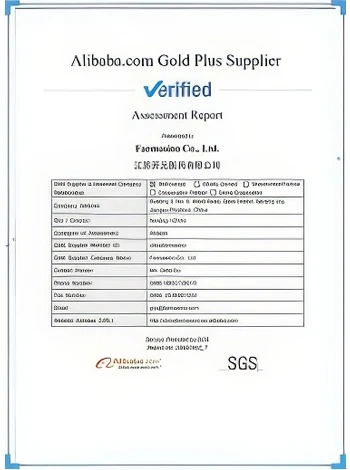



Sodium Chlorate Production Processes and Yield Optimization Techniques in Industrial Applications
The Production of Sodium Chlorate Processes and Applications
Sodium chlorate (NaClO3) is an important chemical compound widely used in various industries, particularly in the production of disinfectants, herbicides, and bleaching agents. Its versatility is a result of its strong oxidizing properties, making it a key player in numerous chemical processes. This article explores the methods of sodium chlorate production, its applications, and the implications for both industry and the environment.
Production Methods
The primary method for producing sodium chlorate is through the electrolysis of sodium chloride (common salt) solutions. This process typically occurs in a diaphragm cell or a membrane cell, where an electric current is passed through the saltwater solution. Chlorine gas is produced at the anode, while hydroxide ions and hydrogen gas are generated at the cathode. The chlorine gas then reacts with the sodium hydroxide in the solution, yielding sodium hypochlorite, which further reacts to form sodium chlorate when exposed to additional hydroxide ions.
Another method involves the chemical chlorination of sodium hydroxide with chlorine gas at elevated temperatures and pressures. This method is less common but can be utilized in facilities that may not have access to large-scale electrolysis equipment. The chemical reaction promotes the conversion of sodium hydroxide to sodium chlorate, which can then be purified through crystallization or other separation techniques.
Moreover, ongoing research and development are exploring more environmentally friendly production methods that minimize waste and energy consumption. Innovations in membrane technology and alternative feedstocks promise to enhance the sustainability of sodium chlorate manufacturing.
Applications of Sodium Chlorate
Sodium chlorate’s primary application lies in the pulp and paper industry, where it is employed as a bleaching agent. The compound effectively removes lignin from wood pulp, resulting in high-quality, bright white paper products. In addition to paper production, sodium chlorate is also vital in the textile industry for bleaching fabrics.
production of sodium chlorate

Another significant use of sodium chlorate is as a herbicide. It effectively kills a wide range of unwanted plants and is particularly effective in controlling perennial weeds. Farmers and agricultural professionals rely on sodium chlorate for its ability to ensure crop yields by managing plant competition.
Moreover, sodium chlorate is extensively used in water treatment processes. Its strong oxidizing properties allow it to eliminate pathogens, making it an essential chemical in ensuring safe drinking water. Municipal water treatment facilities utilize sodium chlorate to disinfect water and prevent the spread of waterborne diseases.
Environmental Considerations
While sodium chlorate plays a crucial role in various industries, its production and use raise environmental concerns. The electrolysis process, for instance, can generate chlorine gas and other by-products that may be harmful if not properly managed. Additionally, improper application of sodium chlorate as a herbicide can lead to soil and water contamination, affecting ecosystems and biodiversity.
As industries increasingly prioritize sustainability, there is a growing emphasis on developing safer alternatives and implementing stricter regulations regarding the use of sodium chlorate. Continued research into more environmentally friendly production methods is essential to mitigate the potential adverse effects on the environment while maintaining the benefits that sodium chlorate provides.
Conclusion
The production of sodium chlorate is a significant aspect of various industries ranging from pulp and paper to agriculture and water treatment. While it offers numerous benefits due to its strong oxidizing properties and versatile applications, careful consideration of environmental impacts is crucial. As the industry evolves, the focus on sustainable practices will shape the future of sodium chlorate production, balancing economic needs with ecological responsibility.
-
Blue Water Disinfectant: Safeguarding Global Water Quality with InnovationNewsNov.22,2025
-
Bleaching Powder for Water Disinfection – Affordable & Effective Water Treatment SolutionNewsNov.22,2025
-
Bleaching Powder Drinking Water: Effective, Affordable Disinfection WorldwideNewsNov.21,2025
-
Essential Guide to a Chemical Used to Disinfect Water | Global Water SafetyNewsNov.21,2025
-
Understanding 2 Chemicals Used to Disinfect Water: Chlorine and Chloramine ExplainedNewsNov.20,2025
-
The Essential Guide to a Chemical to Disinfect Water: Safety, Applications, and Future TrendsNewsNov.20,2025
-
Chemicals Used to Disinfect Water – Key Solutions for Safe and Sustainable Water TreatmentNewsNov.20,2025










